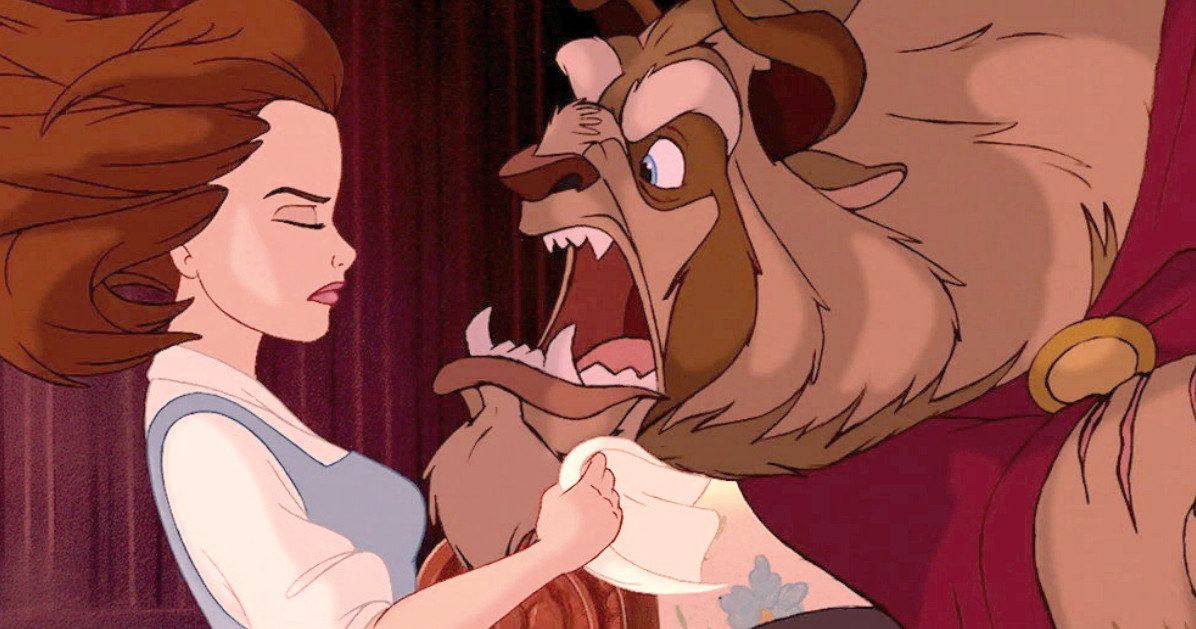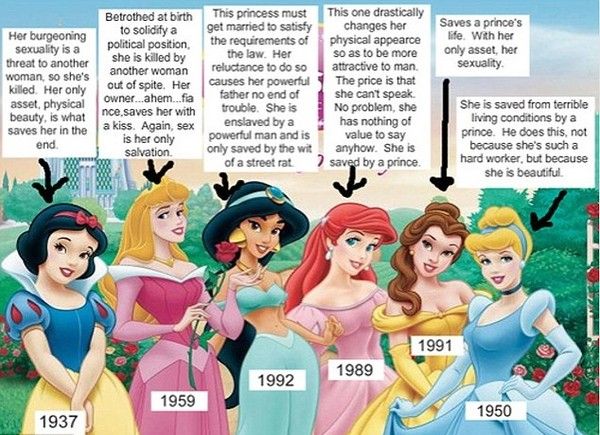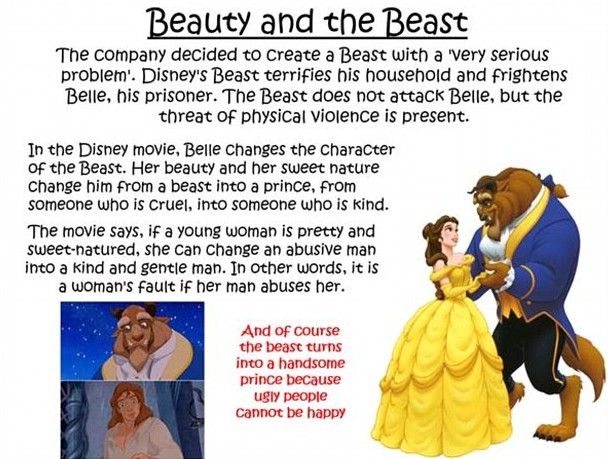Disney's animated classic Beauty and the Beast celebrates its 25th Anniversary this year, with the studio releasing a highly-anticipated live-action adaptation starring Emma Watson and Dan Stevens, set to hit theaters on March 17, 2017. Today we have word that an unusual lesson plan has been uploaded by an anonymous British teacher, who alleges that Beauty and the Beast promotes domestic violence, and that Belle is actually in an abusive relationship. This lesson plan, entitled Racism/Sexism in Disney, is targeted at 11 to 16-year-olds, and has already become quite controversial.
The Daily Mail reports that the lesson plan has been dowloaded over 600 times and viewed more than 11,000 times, but it also may have been shared numerous other times. Teachers can now upload and download their own lesson plans for free on a number of different websites. Here's an excerpt from this controversial lesson plan, which claims that Belle's only asset is her sexuality.
"The Beast does not attack Belle but the threat of physical violence is present. The movie says if a woman is pretty and sweet natured she can change an abusive man into a kind and gentle man. In other words, it is the woman's fault if her man abuses her. And of course, the beast turns into a handsome prince because ugly people cannot be happy."
Belle isn't the only beloved Disney character who is chided in this lesson plan. The lesson plan states that Snow White doesn't mind doing house work, because "she is sure a rich young man will soon come and take her away". Other iconic characters chastized in this lesson plan include Little Mermaid, Cinderella, Sleeping Beauty and Princess Jasmine from Aladdin. Here's what a Disney spokesperson had to say about the lesson plan in a statement.
"For more than 90 years, Disney's timeless stories and beloved characters, including Disney Princesses, have been universal, relatable and relevant for everyone. They are loved by millions of children and adults across gender because it is their inner qualities such as determination, kindness, loyalty, humour, courage and wit that shine through and define them."
Phil Davies, the Tory MP (Member of Parliament) for Shipley, West Yorkshire, called the lesson a "politically correct claptrap," stating that parents don't want their kids to be "brainwashed with garbage like this". A Department of Education spokesperson said that schools are in the best place to decide, "what resources are most appropriate for their children, in consultation with parents." Here's what Chris McGovern, Chairman of the Campaign for Real Education, had to say in his statement.
"These lesson plans represent an ignorant, insidious and covert attack on family values and on the ancient wisdom of fairy tales. They are part of a deliberate strategy to pull apart the ties that bind our society together. Fairy tales, including the Disney versions, allow children to make sense of the world whilst alerting them to its dangers. Like much literature and art, they use stereotypical characters to demonstrate the battle between love and hatred, goodness and evil, honesty and deceit. By undermining and subverting that support and tradition these model lessons are cruel to children and they are, also, dangerous to their well-being and to their mental health. Many parents will be appalled at the way children are being brain-washed by the promotion of politically correct fanaticism in the classroom. They are right to be fearful of the brave new world being created by our so-called 'education' system. By undermining and subverting that support and tradition these model lessons are cruel to children and they are, also, dangerous to their well-being and to their mental health. Many parents will be appalled at the way children are being brain-washed by the promotion of politically correct fanaticism in the classroom. They are right to be fearful of the brave new world being created by our so-called 'education' system."
Beauty and the Beast originated as a story written by Gabrielle-Suzanne Barbot de Villeneuve, which was first published in 1740, but it was Jeanne-Marie Leprince de Beaumont's re-written version published in 1756 that is the most commonly-told version of this story. Disney's live-action version of Beauty and the Beast will hit theaters on March 17, 2017. Take a look at two images from this controversial lesson plan below.



